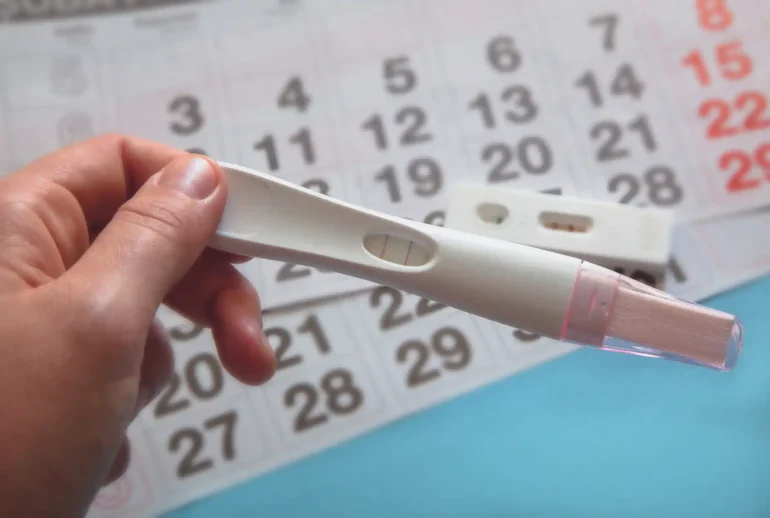The Best Time to Take a Pregnancy Test — And When to Retest If It’s Negative
Trying to figure out the best time to take a pregnancy test? You’re not alone. Whether you’re hoping for a positive or dreading one, timing is everything when it comes to accurate results.
Testing too early can lead to a false negative and unnecessary stress. This guide covers when to test, why it matters, and what to do if your test is negative but you’re still experiencing pregnancy symptoms.
When Is the Best Time to Take a Pregnancy Test?
The best time to take a pregnancy test is at least one week after your missed period. This gives your body enough time to produce detectable levels of the pregnancy hormone hCG (human chorionic gonadotropin).
Some tests claim to detect pregnancy up to 6 days before your missed period — but early testing has a higher risk of false negatives. Waiting increases your chances of an accurate result.
According to the Mayo Clinic, the most reliable time to test is in the morning, using your first urine of the day.
Can You Test Positive Before a Missed Period?
Technically, yes — but it depends on how early your body produces hCG. Some people get early positives as soon as 8–10 days after ovulation. However, for most people, hCG doesn’t reach testable levels until at least 12–14 days after ovulation.
Bottom line: If you test before your missed period and get a negative result, don’t assume you’re not pregnant just yet.
What If You Test Too Early?
Testing too early increases your chances of a false negative. Early symptoms like fatigue, cramping, or nausea may lead you to test out of curiosity — but remember, your body needs time to build up detectable hCG levels.
If you test early and it’s negative, follow up a few days later for confirmation.
Why Morning Is the Best Time to Test
Using first-morning urine helps improve test accuracy. That’s because your urine is more concentrated after you’ve been asleep, increasing the likelihood that hCG (if present) will show up clearly.
Avoid drinking too much fluid before testing — it can dilute your urine and give inaccurate results.
What If You Get a Negative Test But Still Think You’re Pregnant?
This is more common than you’d think. If your test is negative but you still have symptoms like:
- Missed period
- Nausea or morning sickness
- Sore breasts
- Fatigue
- Frequent urination
…you may want to retest in 3–5 days.
Still unsure? Read Can I Be Pregnant and Test Negative? for deeper insight into false negatives and when to see a doctor.
When Should You Retest After a Negative Result?
If you suspect pregnancy but your test is negative, retest in 3 to 5 days. Waiting gives your body time to produce more hCG if you are pregnant.
If your period is more than two weeks late, or if you experience pain or abnormal symptoms, contact your doctor right away.
Digital vs. Strip Tests: Which Is Better?
Digital tests are more user-friendly — they display clear results like “Pregnant” or “Not Pregnant.” Strip tests are less expensive but can be harder to interpret, especially with faint lines.
Choose a test with high sensitivity to hCG and always read the instructions carefully. Some brands can detect as little as 10 mIU/mL of hCG — which is useful for early testing.
How Accurate Are Home Pregnancy Tests?
Most at-home tests are about 99% accurate when used on or after the day of your missed period — if done correctly. Errors typically happen due to:
- Testing too early
- Using diluted urine
- Not following instructions
- Using expired tests
If you want extra assurance, ask your doctor for a quantitative blood test to measure exact hCG levels.
Final Word: Timing Can Make All the Difference
The best time to take a pregnancy test is after your missed period using first-morning urine. If you test early and get a negative, don’t panic — give your body a few more days and try again.
Want more on confusing results? Check out Pregnant But Test Negative? 7 Reasons Your Test Could Be Wrong.
And if you’re in doubt, consult your doctor. Trusting your body is key — but getting a professional opinion can offer clarity and peace of mind.
